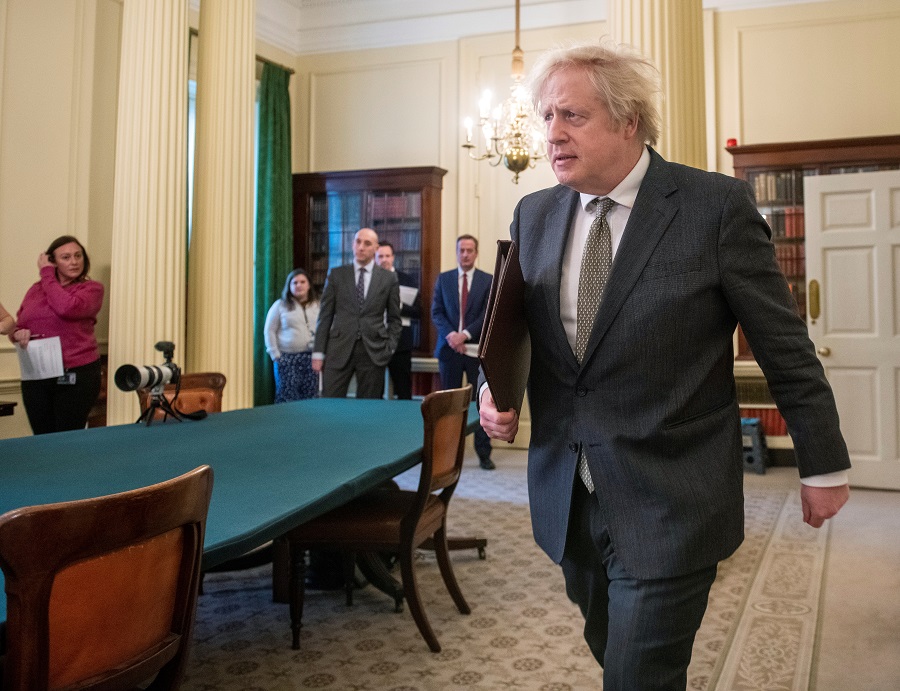The UK thinks that the Indo-Pacific region will be central to the 21st century, and India will be central to the Indo-Pacific. India, the world’s largest democracy, has become an engine of global economic growth.
London: When the balance sheet is complete, it will be clear that Covid-19—a disease that appears to have spread from within China—hit free and open nations particularly hard. Scores have died around the world; economies have been set back several years; even international relations have suffered. Already, the disease has prevented Boris Johnson, the British Prime Minister, from attending in person India’s Republic Day as Prime Minister Narenda Modi’s chief guest.
In the years ahead the relationship between Britain and India can only grow stronger. And it should grow stronger: not only do the two countries have much in common, but they also increasingly share similar interests across many different levels. Their shared interests will only become more apparent after the publication of the UK’s Integrated Strategic Review in March, which is expected to intensify Britain’s so-called “tilt” towards the Indo-Pacific.
The UK thinks that the Indo-Pacific region will be central to the 21st century, and India will be central to the Indo-Pacific. India, the world’s largest democracy, has become an engine of global economic growth. It will soon have the largest population in the world and the Indian Ocean—located between Asia and Africa—is central to what are already the world’s two most populous continents. Critically, the Indo-Pacific is also where China, an authoritarian and revisionist power, is seeking to gain national advantage.
For these reasons, Boris Johnson was right to invite India, Australia and South Korea to attend the annual G7 Summit in June, which is due to take place in the pretty seaside town of St. Ives in Cornwall. After many years of robust economic growth, India is now the sixth largest economy in the world and will soon overtake the UK itself to become fifth. It has already surpassed existing G7 members such as Italy, France and Canada. Over the next decade, South Korea and Australia are also set to leapfrog over some existing G7 members.
However, the British government is said to be keen on going further: to enlarge the G7 to become a D-10. This would provide a new forum for the ten leading democracies of the world to meet. It would facilitate a platform for those countries to work together to uphold a free and open international order.
Does this not make sense? After all, when the G7 was founded in the 1970s, it drew together the world’s most powerful democracies. With the exception of Japan, most of its members straddled the Euro-Atlantic region, making the G7 a decidedly Eurocentric organisation, during a Cold War that was primarily Eurocentric in orientation. But globalisation over the past 30 years has changed the global balance of power. The economic centre of the world is no longer in the North Atlantic; it now sits in Central Asia, having been pulled there by the industrial modernisation of economies in the Indo-Pacific.
Even if the G7 still accounts for around half of global net wealth and in excess of 40% of global economic output, preparations for an Indo-Pacific future should not be held back. Moreover, as large authoritarian powers—such as China and Russia—have stepped up their efforts to remake the international order in their own image, the world has become less predictable and more dangerous. The climate crisis also continues to worsen. If the largest and most powerful democracies are unable to organise themselves to provide leadership, it seems unlikely that other countries will do so instead.
Unfortunately, it is not clear the extent to which existing G7 members support reforming the organisation. It is claimed that some fear their own roles will be diluted by the G7’s potential enlargement. Some are said to fear that adding new members will displace their regional role or harm their interests; others fret that the Eurocentric focus of the group will be lost.
These fears are understandable. But the international architecture cannot remain static: it must adapt to confront new challenges brought about by the changing economic and geopolitical balance of power. The G7 must adapt too, or else it will become a talking shop, composed of yesterday’s countries, in yesterday’s regions, confronting yesterday’s problems.
Other G7 members—not least Japan and European countries—should be more foresightful and embrace the British proposal, even if it has yet to be fully worked out. A free and open Indo-Pacific will not be upheld of its own volition. Just as the free and open Euro-Atlantic order took careful, calculated steps to engineer, an equally free and open Indo-Pacific will require its leading democracies to work together for the common good.
And of these, India is of vital importance. Its perspective will be increasingly important in the years ahead, whether in the halls of Whitehall or the capitals of other major democracies, particularly those in the Indo-Pacific.
James Rogers is Co-founder of the Council on Geostrategy, a new think tank established in London. In the past he has worked for the Baltic Defence College and the European Union Institute for Security Studies, among other places. His research interests include Britain’s international role and Indo-Pacific and Euro-Atlantic geopolitics. He holds an MPhil from the University of Cambridge and a BSc Econ (Hons) from Aberystwyth University.

